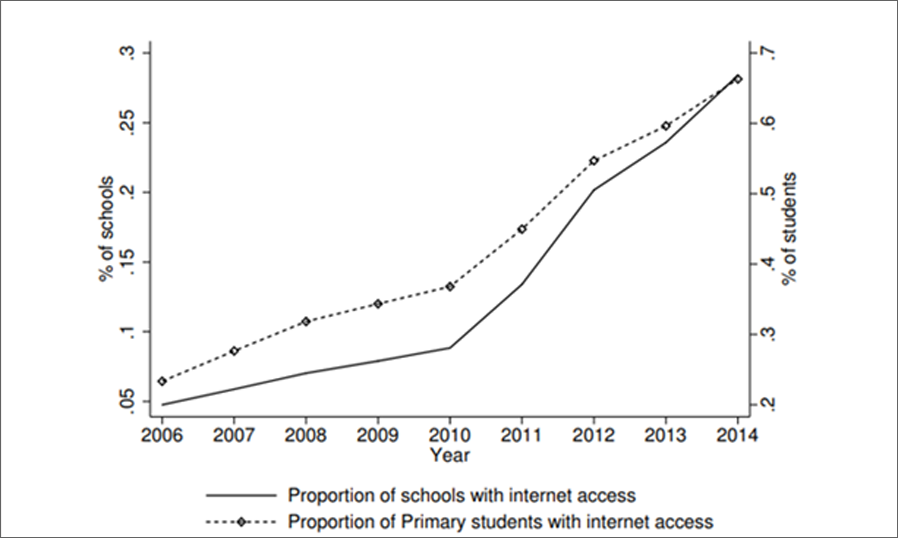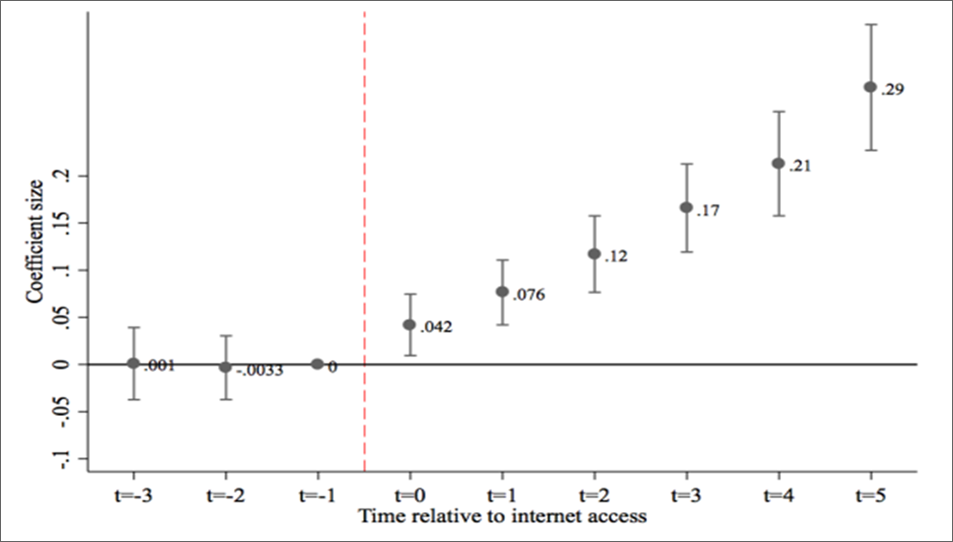How Does Internet Access Affect Students’ Ability to Learn
The internet is a powerful tool. It can be used to learn new skills, connect with people around the world and gain access to information that was once unattainable. However widespread access to high-speed internet remains an elusive goal in many parts of the world. In Peru alone there are over two million households without internet access (World Bank). This lack of accessibility is especially concerning for education as the use of online e-learning has been widely adopted in many countries around the world, with positive impacts on student achievement. The internet is rapidly becoming an important part of education in Peru, and access to the online world has become a key component of student success.

The findings of the above graph estimates that 7,089 school, and the 933,000 students in these schools, gained internet connectivity between 2007 and 2014. This means rate of internet connection in Peruvian schools increased from 5% to 30% and that the majority of students with internet connection in their schools jumped from 23% to 66%.
Impact Internet Access on Student Learning in Peruvian Schools Study
A study from Michigan State University investigates how internet access affects student achievement in Peru by exploring the relationship between students’ internet use and their academic performance. The importance of this study lies in its potential to contribute to knowledge about how students’ abilities can be enhanced through technology use while also improving their overall educational experience. Further, it will help increase our understanding of how technology can be used as an effective tool for learning and teaching purposes in Peru. The research will provide important information regarding how best practices can be implemented given certain conditions such as limited resources, or geographical location like rural versus urban.
How Internet Access Impacted Students in Peru
The results of the study show that internet access has a positive impact on students learning. The findings indicate that students who use the internet are more likely to complete their homework and exams than those who do not have access to the web. Additionally, they tend to perform better on standardized tests than their peers without internet access.
This trend holds true regardless of whether students live in urban or rural areas; however, it becomes more pronounced when considering schools with limited resources like those in more remote areas of Peru. These findings suggest that providing all Peruvian children with equal opportunities for education requires providing them with equal access to technology like computers and smartphones so they can work from home instead of having to travel long distances just so they can complete class assignments after school hours at library locations where there aren’t enough computers available.
Key Findings:
- Positive impact on student learning
- Access to internet connected computers improves students’ scores.
- Grades continue to improve over time.
- Computer access without internet does not make as big an impact.
- Teachers need adequate support and training to

Increased Access to the Internet Has an Impact on Student Safety
With the clear benefits increased access and use of the internet has been for students in Peru, this can also bring with it the challenges of the online world. Both students and teachers have a growing experience with the internet which means there is a constant need to learn about inappropriate or potentially dangerous websites they may access. Internet filters can support schools prevent students from being exposed to countless dangers through their use of the internet or content that might make them feel uncomfortable or unsafe.
Keeping Students Safe with Internet Filters for Schools
With the increased adoption of devices and internet access to student globally, schools need to protect their students from inappropriate or malicious content that can be found online. Netsweeper’s web content filter is the most effective way for schools to do this. nFilter goes beyond the static lists of basic internet filters. nFilter leverages advanced AI to block millions of harmful websites to protect students on school devices. Real-time, comprehensive filtering, reporting, and alerting of online and offline activity creates a secure learning environment while safeguarding students from inappropriate content like, violence, self-harm, and cyberbullying.
If you’d like to find out more about the Netsweeper solution and how we can protect your students from online vulnerabilities request a demo with one of our specialists today!
